Hounslow runs its own local authority owned company (LATCO) called Lampton Services. Lampton Recycle 360 is the waste management arm which carries out the council’s waste and recycling collections. It took over the local authority’s waste services from Suez, which held the contract until the 2016 switch.
Lampton Recycle 360’s director of recycling and sustainability services, Dan Smyth, explains that the decision was made as Hounslow’s contract with Suez was at the end of its natural lifecycle at the time. Working with the consultancy Eunomia, the council then carried out a review of its options.
“The council leaders at the time were quite keen on going down what they thought was the most sustainable route in terms of having a kerbside-sort system, which they already had but wanted to develop further rather than switch to commingled,” Mr Smyth outlines. “They also liked the idea of building their own materials recycling facility (MRF) and managing it all themselves so that if there was any profit anywhere, it could go back as a dividend.”
While the first three years accounts show a ‘nil’ on the profit/balance sheet, the company has now posted two successive profits, the latest of which was £301,849 after taxation in the financial year 2021/22.
This was largely attributed to the high-quality materials achieved through the kerbside-sort system and its MRF, which “ensure materials achieve the best possible prices even in a difficult market” (see letsrecycle.com story). Lampton Recycle 360 trades their recyclate through the broker Plan B.
Waste volumes
Mr Smyth notes that the council’s throughput is “steadily growing despite the cost-of-living crisis”. “We saw a massive increase of about 20% in the volumes of waste because of lockdown and that has now drifted down to roughly about where it was before,” he adds.
Mr Smyth explains that the company carries out collections with a fleet of 24 ROMAQUIP kerbside-sort vehicles, which do 20 rounds a day, serving 15,000 households daily. He notes that the company ran a hydrotreated vegetable oil (HVO) trial on part of the fleet through summer 2021 and in November, Hounslow agreed its use as a transition fuel in journey to net zero before 2030. “We are ready to make the transition, subject to additional funding,” Mr Smyth adds.
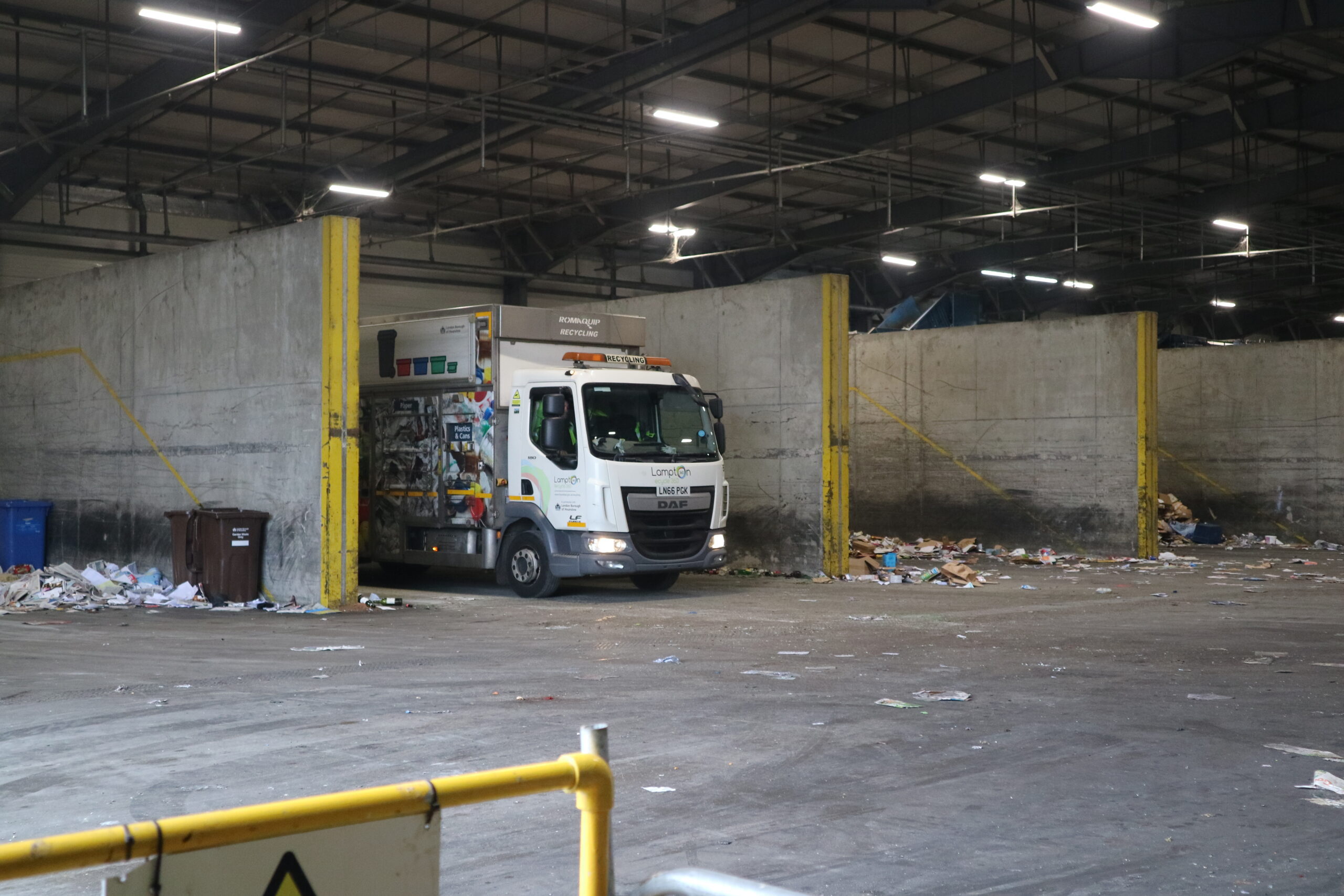
In terms of average monthly throughput, food waste is what the company collects most of at approximately 490 tonnes each month. This is then sent to Bio Collectors’ anaerobic digestion (AD) facility in Mitcham for treatment, with the contract set to last for another three or four years, Mr Smyth says.
Food waste is high on the council’s agenda, he continues, pointing out that one of the council’s main targets for the next couple of years is to double the amount of food waste captured. “We know that we’re collecting about 1.5 to 2 kilograms a household from kerbside, but we know there’s another 2 to 3 kilograms per household in the residual waste bins,” Mr Smyth outlines. “If we can capture some of that, we have the double whammy of saving on disposal costs from approximately £100 on incineration fees to £15 on AD as well as getting it up the waste hierarchy. And we’ve got the capacity on vehicles so we wouldn’t have to change anything.”

Card is the next most collected material after food waste, with an average monthly throughput of 452 tonnes, followed by glass at 413 tonnes. The total amount of material received at Lampton’s MRF monthly is 1,795 tonnes on average, which also includes plastic, steel and aluminium cans, paper, textiles, waste electric and electrical equipment and hard plastic.
Recycling rates
In the first year of taking over from Suez, the company changed to alternate weekly collections, with recycling collected weekly and residual waste collected fortnightly. “We’re one of the only councils in the country that has done that with a 140-litre wheelie bin, which was a bit risky but seems to have worked quite well,” Mr Smyth highlights.
When asked about the impact of moving waste services in-house on Hounslow’s recycling, Mr Smyth said that the recycling rate has risen to 36.3% in the second quarter of 2022/23 compared to 30.1% in 2016/2017. He however notes that “it’s not a massive step change we would like”.
“We’ve got a pretty good service at kerbside,” Mr Smyth says. He adds that “in his personal opinion, London’s target of 50% recycling rate by 2030 doesn’t address the demographic problems of high rise communal urban setting”. He highlights contamination as a particular issue in this type of setting – “we’ve got the services there, but it only takes one person that can’t be bothered and it ruins the lot”.
The company is also looking at doing a contamination campaign with the council from April, according to Mr Smyth. “It’s been a few years since we’ve given info to every household and refreshed what we’re doing,” he remarks, explaining that there will be new banners on the vehicles as well as targeted media. “We’re good at gathering information when collection material on where contamination or fly-tipping is. Over time we can identify locations where there’s a problem, which the council officers can then go to and address. You can’t do it all at once, but you can target different things and try and bring people along.”
Legislation
Also hoped to increase recycling rates and the quality of collected materials are the long-awaited waste reforms. With the government having published its response on the deposit return scheme (DRS) in England, Northern Ireland and Wales, many local authorities voiced concerns that they might lose revenue from the sale of recyclate collected at kerbside (see letsrecycle.com story).
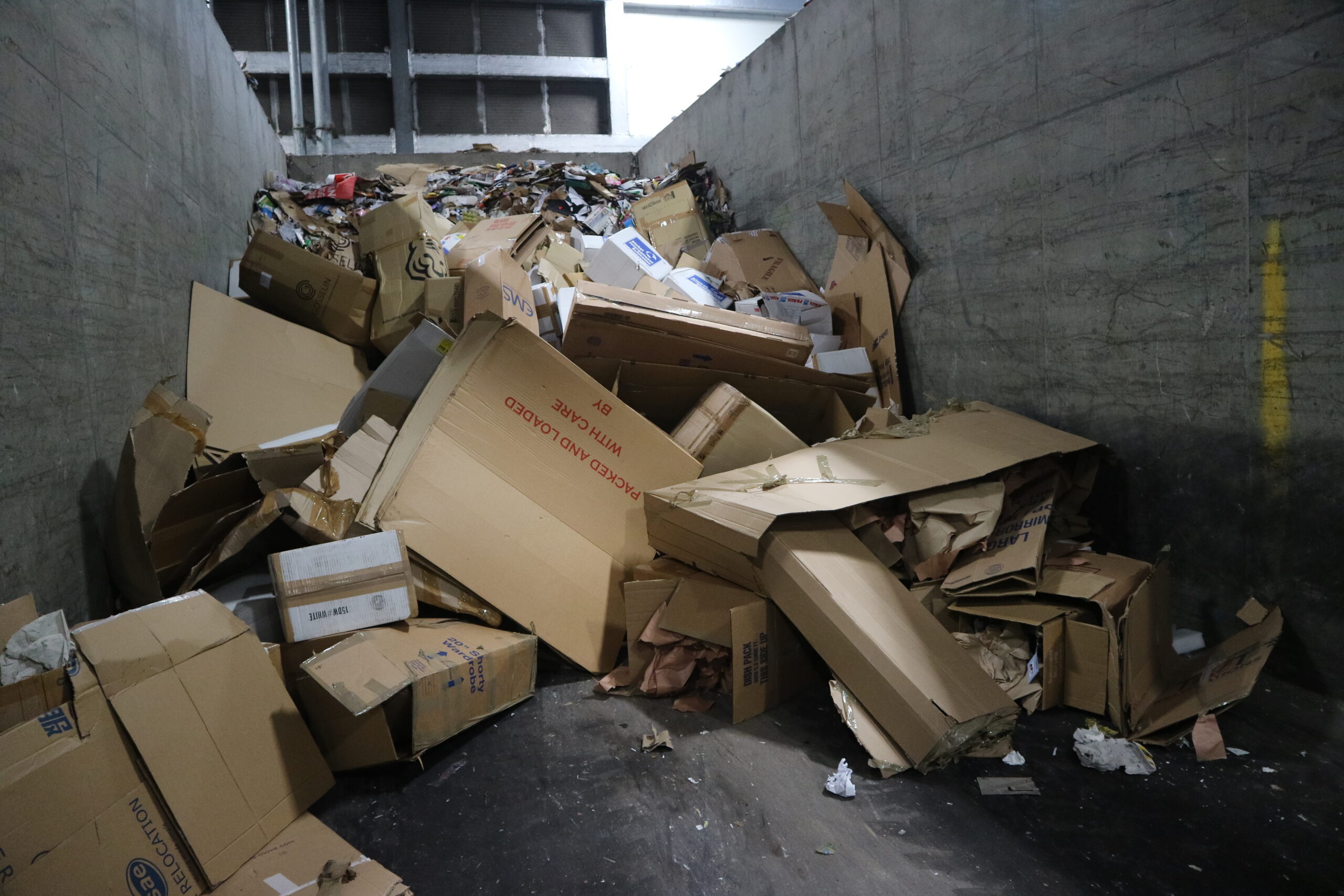
“I’m trying hard not to plan too much while leaving the door open for whatever might come,” Mr Smyth admits. He mentions that one of the biggest barriers right now is that the fleet of vehicles needs renewing next year. When looking at buying a new generation of ROMAQUIP or their equivalent from another manufacturer, the company is considering ordering a chassis and a platform with the option to change the compartment sizes later on to get around the potential future complications.
“We worry about the impact of DRS – if a load of the plastic bottles and cans away is taken away from the kerbside, we’re still going to have to go to pick up the glass, paper and food waste. We’ll still be running the vehicles but we’re going to lose that income,” he warns.
To balance this out, Mr Smyth suggests that the company might be able to serve supermarkets and local shops in the borough. He explains that the company has launched a commercial waste service in July last year and is currently serving 69 customers. According to Mr Smyth, the company hopes to grow its commercial waste service with an initial focus on Hounslow.
“We really want to try and get a bigger market share,” Mr Smyth adds, concluding that the company will be considering tendering for other local authority contracts as well.





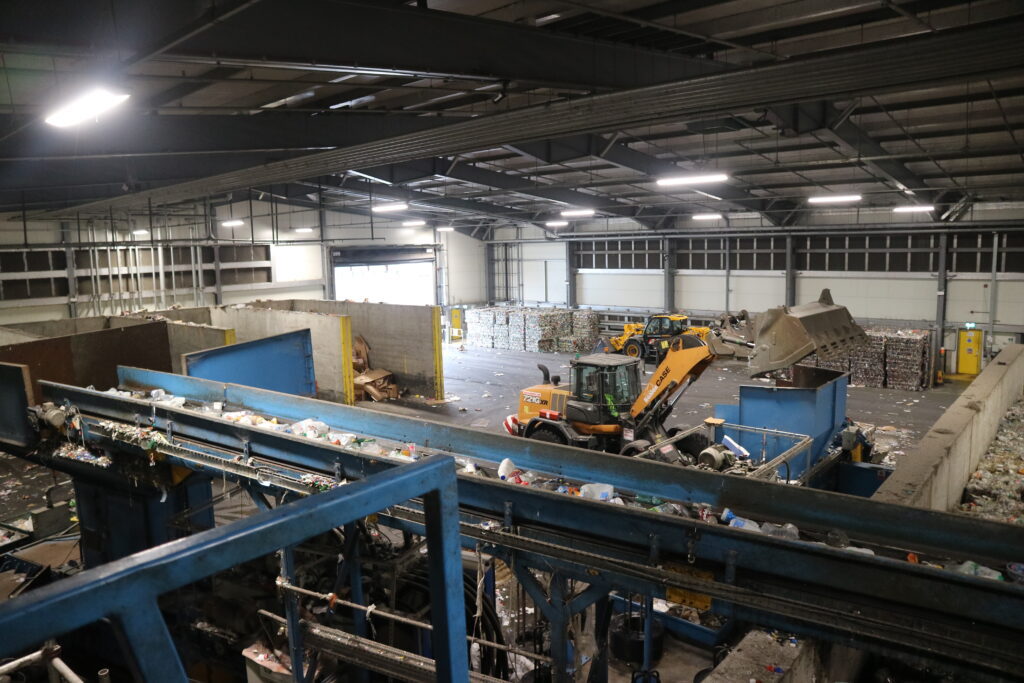

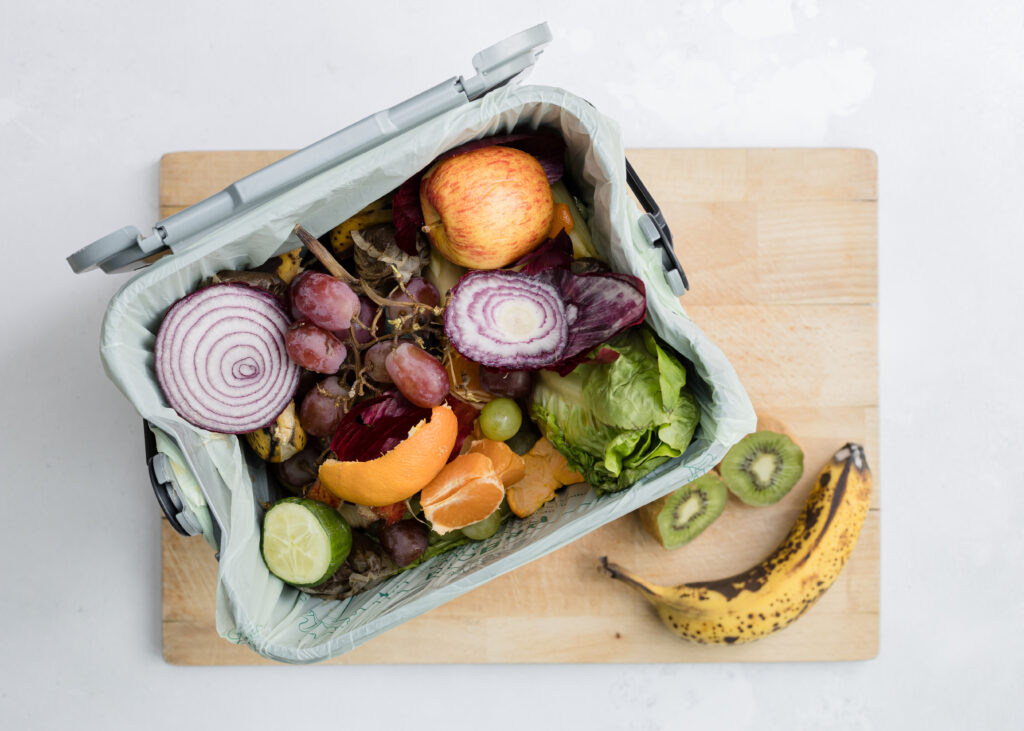

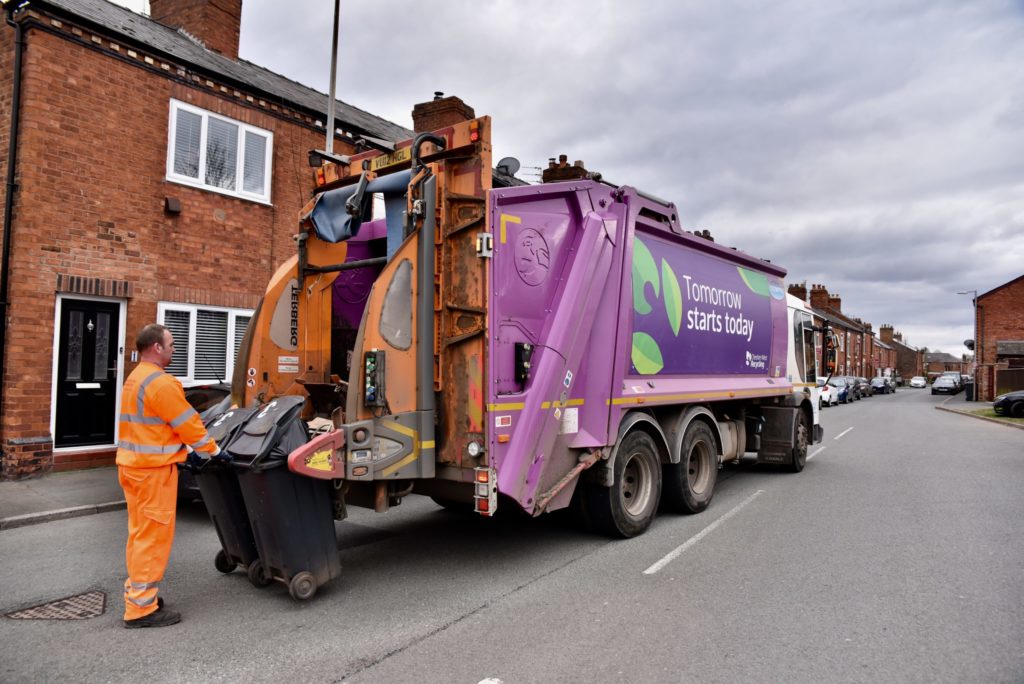


Subscribe for free